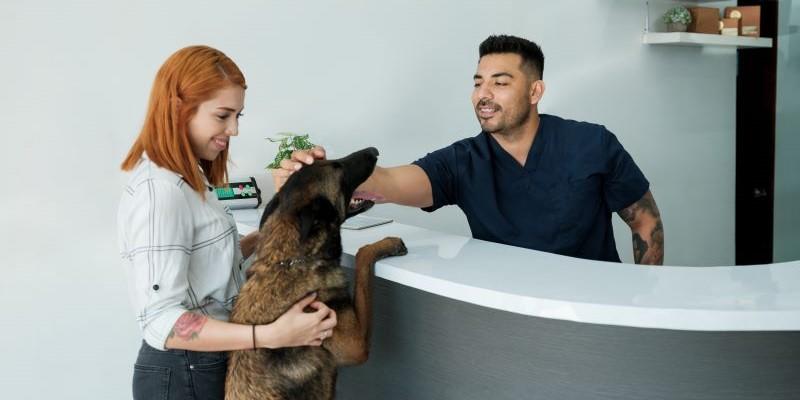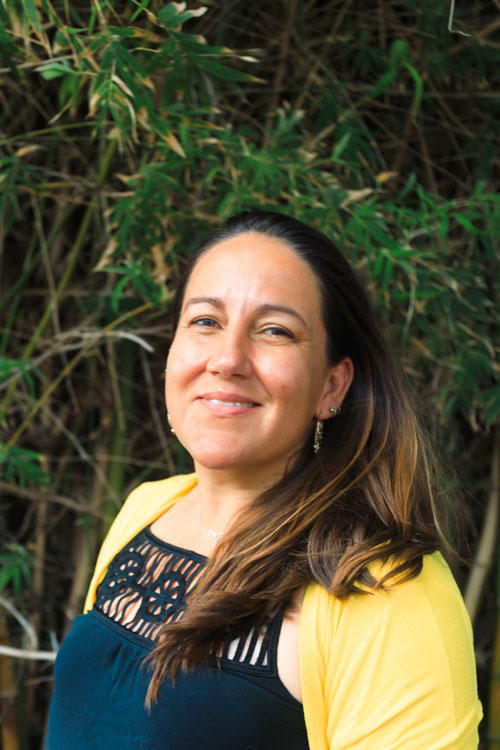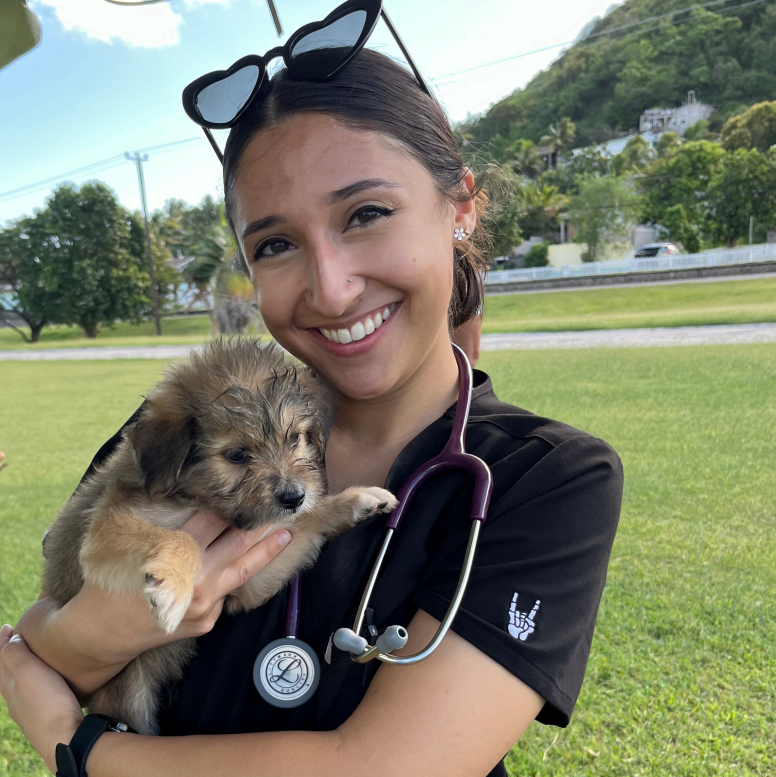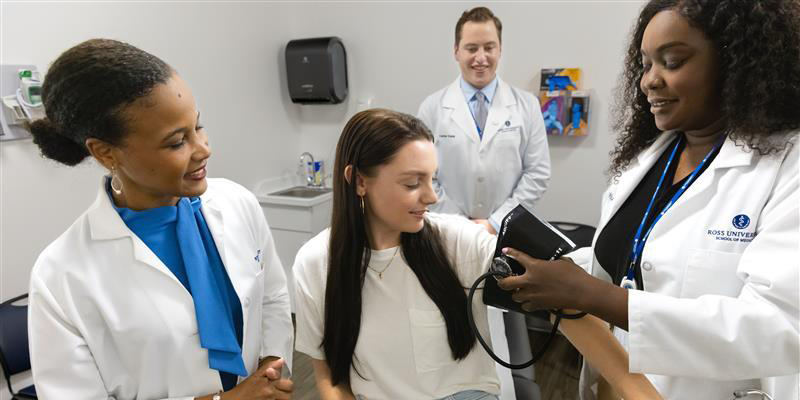Adtalem’s Ross University School of Veterinary Medicine launched a course for students to improve clinical communications and cultural understandings of their Latinx clients.
“If students of veterinary medicine prepare, get trained, and get the tools to communicate effectively, but also are aware of the cultural background of their clients, a better relationship between the client and the veterinarian could be achieved.”
This is an excerpt from a presentation given earlier this year at the American Association of Veterinary Medical Colleges annual conference by Dr. Maria Jose Navarrete Talloni, associate professor and assistant dean of diversity, equity, and inclusion at Ross University School of Veterinary Medicine.
Through grant funding from Walden University’s Center for Social Change, Dr. Navarrete Talloni spearheaded the development of a module-based communications course—Clinical Communication and Cultural Competency: Latinx Communities—to enhance cultural awareness and communication skills among aspiring veterinary professionals.
Starting with fall 2024, 7th-semester students enrolled in Veterinary Professional Foundations will be among the first to have the new modules incorporated into the curriculum for that course.
Curricula to Address Changing Demographics
Latinx communities are a rapidly growing demographic in the United States, making up about 19% of the population. Spanish is the second most spoken language in the U.S. Despite this, veterinary medicine remains one of the least diverse health professions, with fewer than 8% of veterinarians identifying as Hispanic.
says Dr. Navarrete Talloni, who is originally from Chile.
1 in 4 RUSVM graduates have been people of color over the past three years.
A Look Inside the New Course
The Veterinary Clinical Communication Program consists of five modules aimed at improving cultural competency for Latinx clients and farmworkers, as well as equipping veterinary professionals with the skills needed to bridge communication gaps, build trust, and improve care for diverse populations.
The course design introduces students to the fundamentals of Latinx culture—language, geography, and the cultural significance of animals—emphasizing the need for culturally competent verbal and non-verbal communication in veterinary practice.
In later modules, students learn about the Latinx perspective on companion animal care and the human-animal bond, providing insights into Latinx cultural beliefs and practices that influence pet care. They learn about the role of Latinx workers in the food production industry and the communication barriers that exist between veterinarians and these workers.
The course concludes with testimonials from Latinx clients, veterinarians, and students, offering real-world perspectives on the challenges and opportunities in serving Latinx communities.
Input from Latinx Students
Isabella Minacapilli, a third-year veterinary student and former president of RUSVM’s Latinx Veterinary Medical Association (LVMA), is one of the featured student testimonials.
“Effectively serving Latinx communities involves more than just speaking or providing resources in Spanish,” she says.
As faculty advisor of the LVMA, Dr. Navarrete Talloni, invited Minacapilli and other LVMA leaders to be the first students to focus group the modules. They were asked to provide feedback on what they liked about the exercises, what resonated with them as Latinx individuals, and things that could be improved for its launch this semester.
RUSVM has more than 25 student clubs and organizations.
Minacapilli, whose family emigrated from Venezuela when her father was young, believes the communication program will have an immediate impact.
Dr. Navarrete Talloni also believes training the next generation of students is crucial for mitigating disparities in care for Latinx populations.
“The gap in language and cultural understanding, particularly in the food animal industry, poses significant health and safety risks, not only for animals but also for farmworkers,” she says. “Properly equipping veterinary students with the skills and knowledge to communicate effectively with Latinx clients can lead to improved relationships between veterinarians and clients, ultimately enhancing care outcomes for both animals and people.”
For more information, email the Adtalem Global Communications Team: adtalemmedia@adtalem.com.





